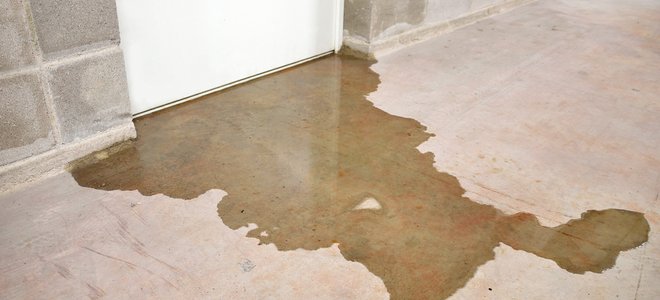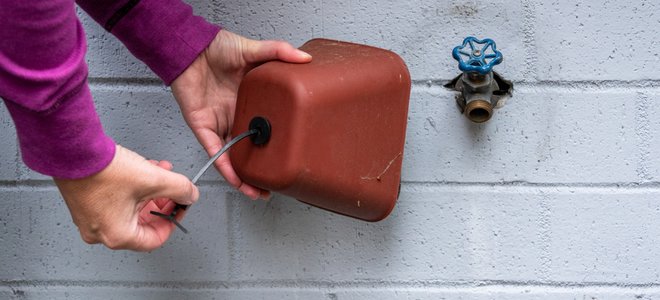
Water leaks from an outside faucet into a basement are a common phenomenon. Early detection of such leaks and a bit of DIY knowledge will go a long way in saving you money and stress. It’s therefore imperative that you be on the lookout for such leakages. If you spot one, the following guide should help you sort out the mess!
What Is an Outdoor Faucet?
Sillcocks, hose bibbs, and spigots are just a few terms for exterior faucets. An outside faucet is simply a valve that regulates water supply to a garden hose or other outdoor water tool. Unfortunately, their location outside of the house makes these plumbing elements prone to bursts during freezing conditions.
Numerous “frost-free” sillcocks/hose bibbs have been developed over the years to try and address pipe failures and basement leaks from winter-induced freezing. However, these designs are not always perfect. Therefore, just like the standard hose bibbs, frost-free sillcocks require winterization to survive the harsh winter condition.
What Causes a Faucet to Leak Water into Your Basement?

Failed hose bibbs are one of the main reasons why water leaking from your outside faucet keeps trickling into your basement. The failed hose bibbs can result from the homeowner’s neglect or from the valves inside the hose bibb, which are usually prone to wear and damage.
Some homeowners are inclined to leave hoses with sprayers attached to their sillcocks with the water shutoff valves turned off. While the practice will have no downsides during summer, if the same setup is left unattended during winter, it could result in severe pipe damage.
In a normal setup in winter, when a hose bibb is turned off, the water is drained out of the faucet, and the valve, having been tucked deep inside the house, would not freeze. However, if a hose with a sprayer is attached to the tap, the water will not drain when the hose bibb is turned off.
As a result, this stagnated water freezes, creating an ice plug. As the water in the outer parts of the faucet freezes, more pressure is created between the ice plug and the closed valve. As more pressure builds up, the pipe may be split or burst in the process, releasing water into your basement.
Initially, when the pipe bursts, the discharge is usually negligible and can go unnoticed. However, soon as the sillcock is turned on, a major leak ensues, which can damage the basement’s drywall, carpet, framing, and insulation if not detected early.
How Does Winterization Prevent Basement Leaks?
To understand how winterization secures your sillcock, you first need to understand the mechanism by which sillcocks operate. The main distinction between a standard sillcock and the frost-free type is the location of their water shutoff valves.
Practically speaking, most sillcocks have their shutoff valves tucked deep inside the house to prevent them from freezing. A standard sillcock has its shutoff valve located near its handle hence operated directly. On the other hand, a frost-free sillcock has its valve incorporated about 11 meters inside the water supply line. Therefore, given the distance to the shutoff valve, we use the handle to sort of “remotely” operate the shutoff valve in frost-free sillcocks.
A properly installed hose bibb should be slightly slanted to ensure all the water is drained out when turned off. This theory assumes that a hose is not attached to it when not in use. Slanting is meant to ensure that no water remains on the hose bibb that would freeze, build pressure, and consequently burst the pipe.
If you’re still concerned about your faucet, you can apply a cover for it in colder months.

How Do I Winterize My Hose Bibb?
Winterizing a hose bibb is an easy exercise. Start by removing any water gadgets attached to your hose bibb, then shut the valves for each of your hose bibbs. Open the hose bibb to drain any remaining water held in and finally close the hose bibb.
Conclusion
Managing basement leaks from outdoor faucets is a straightforward task. Unfortunately, many people get caught off-guard by frost because of neglect or ignorance. For instance, most homeowners typically forego the need to have shutoff valves installed. If your hose bibb lacks shutoff valves, we advise you to get them installed now. Shutoff valves are inexpensive gadgets, but they can head off many pricey problems.
Source link : https://www.doityourself.com/stry/water-leaking-into-basement-from-outdoor-faucet












